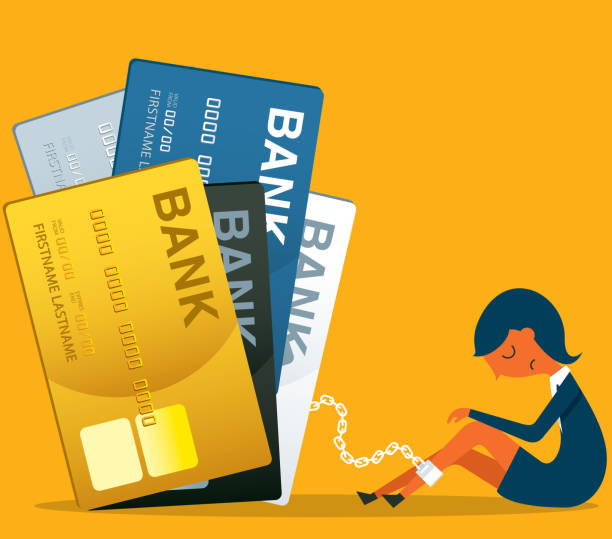Credit.org helps people to pay off their credit card debts. This is a key step to financial freedom for almost everyone.
Although it may seem simple to pay off credit card debt, there are some important things that every credit card holder should be aware of.
Do you have to pay your credit card each month? Yes!
Most people consider making the final payment to clear a credit card debt a special occasion. Many of our clients spend many years working towards that goal.
However, this is not the right way to do things. You can use credit cards smartly to pay off your balances each month. You can even do better and pay your credit card immediately after you make a purchase. Don’t wait for the monthly bill.
You can achieve the best possible credit score if you control your credit card usage and pay the full monthly balance. This will allow you to have a positive credit score and reduce fees.
Getting into a healthy habit of paying your monthly balances on time and using credit cards sparingly is not easy. Credit card companies make more money when you have large monthly balances. We must resist the temptation of charging more than we can repay monthly.
Credit counseling can help you plan how to repay your credit card.
Credit counseling provides personalized guidance and support to help you make a budget and plan to eliminate debt over a certain period.
Many people come to us looking for ways to pay off their credit cards. But there are no tricks. Sound money management and time-tested strategies are key to managing credit card debt.
To increase your chances of success, you can sign up for a Debt Management Plan.
DMPs can be optional and not for everyone. However, if you are a good candidate, a DMP allows you to consolidate all your monthly credit card payments into one payment you send to credit counseling agencies. The credit counseling agency distributes your payments among your creditors to ensure everyone is paid on time.
The DMP has many benefits. Many creditors will lower the monthly payment amount, lower interest or waive fees and re-age the account to make it easier to pay the credit card debt in full.
These concessions require sacrifices. While on a DMP, you can’t open credit or use credit cards. Accounts will be closed and cards canceled when you start the repayment plan.
A DMP is only available for as long as you require it. If your financial situation changes and you can manage it yourself, you can always leave the DMP and reapply to credit card accounts. You can also resume regular payments if you wish.
“Should I pay my credit card in full? “Once the credit card is paid off, should you close the account?”
It will feel liberating to pay off your credit card debt. It’s possible to feel compelled to close your account and never look back.
It’s usually not the best idea, believe it or not.
If someone asks, “Should I pay my credit card full payment?” the answer is. In many ways, paying off a balance will improve your credit score. Your credit score will be improved if you have good payment habits and pay off debts on time.
After the loan is paid off, you can keep your account open. An open account with a balance is a good thing. The available balance can help improve your credit score if you don’t max out the card. Keep the account active and use it every few months to ensure that your creditor doesn’t close it because it is inactive.
Good credit scores are also a reward for having good credit. It’s best to have different types of loans, such as auto, home and revolving debts, such as credit cards. Your score could be affected if you close your credit card accounts.
You can celebrate paying off your large credit card balance, but you don’t make a big deal about it, and your credit rating will be grateful.
Your credit score will be affected if you pay regularly.
While we discussed how having a balance can help your score and how important credit mixes are, the truth is that your score may not increase as much if you pay off the balance.
Your payment history largely determines your Fair Isaac Corporation’s (FICO(r)) score at 35%. This is also very important for your VantageScores. Your credit score will improve if you make timely payments before paying the account.
We advise you not to close the account. This is more about keeping your score from going lower than making sure it goes up. If you don’t close your account, your credit mix will not change. This is good, but it doesn’t mean your score will increase.
Utilization is the only factor that will likely improve your score. It is 30% of your FICO and about 23%* of VantageScore. A large balance can be paid off, but it will not affect the utilization rate. The account will still work if the account is open and you don’t have any long-term debts.
Your payment history is the most important aspect of your credit score once the account has been paid off. The best way to improve your credit score and maintain it is to use your credit responsibly and repay the credit card after each purchase.
The next crucial step: Save.
Let’s summarize: Should you pay your credit card bills every month? Yes. Do I have to pay my credit card in full? Yes. Do I have to pay my credit card off after each purchase? Yes, These are all important steps toward financial freedom. Your next steps after paying off your debts can significantly impact your finances.
We have already discussed the importance of keeping your credit card account open and not raising new debts. After you have paid off your credit card balance, focus on how you pay your regular credit card payments.
Use the snowball method to pay off your credit card debt. A fixed payment is set up that you can afford and goes towards your credit card debt. Pay off one card and keep the total amount the same. Then, transfer that payment to the next highest or most expensive debt. You will see a reduction in your debts as you pay them off. This payment will help you eliminate all your debts quicker, even if the amount isn’t increased.
After everything is paid off, you can continue to set aside the amount you sent to credit card companies. But now, you will save it for your savings goals.
You’ll be tempted to spend $200 more on your monthly credit card balance if you use $200. This is a crucial moment in your financial health. You must move from repaying a debt to saving for your future goals.
Your first goal is to create an emergency savings account. At a minimum, three months of income is sufficient. Nine months would be better. Everybody needs to save money for an emergency or job loss. However, your emergency fund should not allow you to get into more credit card debt in the future.
You should not use a credit card to pay for an emergency repair or home. You can easily build this fund by saving money you used to pay on credit cards.




